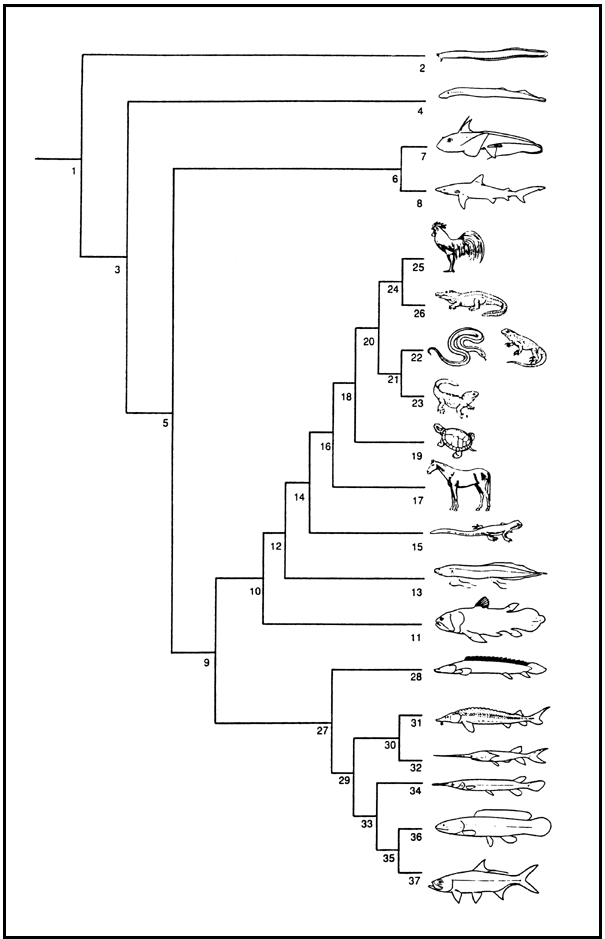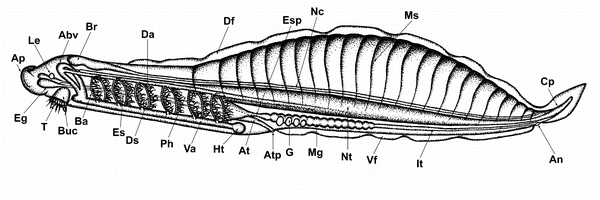
 |
Freethought & Rationalism ArchiveThe archives are read only. |
|
|
#1 | ||
|
Veteran Member
Join Date: Sep 2000
Location: St. John's, Nfld. Canada
Posts: 1,652
|
creationists questions that evil stupid god hating bible denything evilutionists can't answer
Quote:
Quote:
I can't be certain but isn't there a larger difference between two fish (say, a guppie and a shark) than there is between apes and humans? Seems that would make apes and humans one "kind" since guppies and sharks are one "kind" based on LESS similarity! <img src="graemlins/banghead.gif" border="0" alt="[Bang Head]" /> <img src="graemlins/banghead.gif" border="0" alt="[Bang Head]" /> <img src="graemlins/banghead.gif" border="0" alt="[Bang Head]" /> <img src="graemlins/boohoo.gif" border="0" alt="[Boo Hoo]" /> <img src="graemlins/boohoo.gif" border="0" alt="[Boo Hoo]" /> <img src="graemlins/boohoo.gif" border="0" alt="[Boo Hoo]" /> {tgamble, please refrain from putting inflamatory language in the topic heading. Thanks! -theyeti} [ February 05, 2002: Message edited by: theyeti ]</p> |
||
|
|
|
|
#2 |
|
Regular Member
Join Date: Apr 2001
Location: Dallas
Posts: 184
|
A shark is very different from a guppie. For one thing it isn't a "real" fish in the sense that it doesn't have any actual bones, but only cartilage in its skeleton. You might be able to truthfully say that a guppie is closer to a human than to a shark! Someone who knows more about the subject may correct me on the actual evolutionary "distance" but I know it's true about a shark not being a true fish.
|
|
|
|
|
#3 | |
|
Regular Member
Join Date: Jun 2001
Location: Southern California
Posts: 131
|
Quote:
|
|
|
|
|
|
#4 | |
|
Veteran Member
Join Date: Sep 2000
Location: St. John's, Nfld. Canada
Posts: 1,652
|
Quote:
<a href="http://www2.uic.edu/~vuletic/cefec.html#4.12" target="_blank">http://www2.uic.edu/~vuletic/cefec.html#4.12</a> 3,500 years ago, a small lake was separated from Lake Victoria by a sandbar. There are now five species endemic to the new lake; they have evolved from the original species in a geological instant (McGowan 1984:29). A population of Nereis acuminata that was isolated in 1964 was no longer able to interbreed with its ancestors by 1992 (Weinberg et al. 1992). New species certainly can emerge quickly. According to brittanica fish are: "any of a variety of cold-blooded vertebrate animals (phylum Chordata) found in the fresh and salt waters of the world." wouldn't that include sharks? |
|
|
|
|
|
#5 | |
|
Regular Member
Join Date: Apr 2001
Location: Dallas
Posts: 184
|
Quote:
Class due to the lack of a bony spine. They're called fishes but only loosely. Their common ancestor with the guppies is a lot further back in time than our common ancestor with the guppies. Or so I've been led to believe. I'm not an expert... |
|
|
|
|
|
#6 |
|
Veteran Member
Join Date: Jan 2001
Location: USA
Posts: 1,072
|
DNAunion: Never mind.
[ February 05, 2002: Message edited by: DNAunion ]</p> |
|
|
|
|
#7 |
|
Veteran
Join Date: Aug 2001
Location: Snyder,Texas,USA
Posts: 4,411
|
According to <a href="http://phylogeny.arizona.edu/eukaryotes/animals/chordata/gnathostomata.html" target="_blank">this page</a> on the fantastic Tree of Life website, we are quite a bit closer cousins to bass than bass (or we) are to sharks. All three are Gnathostomata: sharks are in the Chondrichthyes side of the clade, and Billy Bass and I in the Osteichthyes. (None of this will catch on when you're telling your two-year-old what a horsey says, by the way.)
I'm sure that the dictionary (= folk) definition of a "fish" is based on "one of those swimming things," and not on any cladistics. Cross post, but a short one! [ February 05, 2002: Message edited by: Coragyps ]</p> |
|
|
|
|
#8 | |
|
Veteran Member
Join Date: Aug 2001
Location: Ohio, USA
Posts: 1,162
|
Cladistically speaking, if elasmobranchs (sharks & rays) are fish and bony fish are fish, then all tetrapods are fish too, since tetrapods and bony fish are more closely related than bony fish are to elasmobranchs.
From <a href="http://www.fishbase.org/manual/orders.htm" target="_blank">here</a> Quote:
 Similarly, if we call both gorillas and chimpanzees "apes," then we should also include ourselves as apes, as the chimpanzee is more closely related to humans than to gorillas. [ February 05, 2002: Message edited by: zetek ]</p> |
|
|
|
|
|
#9 | |
|
Senior Member
Join Date: Jan 2002
Location: California
Posts: 646
|
Quote:
(So, is a lancelet a fish too?) (and if tetrapods are fish, then dolphins and whales are fish too, so all those six year olds who were gently corrected in first-grade biology were right after all). Nic PS: While we're on the topic, let's have a vote. Fish, or not fish, in whatever sense that word means to you:  (<a href="http://www.nmsr.org/iconlink.htm" target="_blank">the back story</a>) [ February 05, 2002: Message edited by: Nic Tamzek ] [ February 05, 2002: Message edited by: Nic Tamzek ]</p> |
|
|
|
|
|
#10 |
|
Veteran
Join Date: Aug 2001
Location: Snyder,Texas,USA
Posts: 4,411
|
Nic - I vote not-a-fish, because it's not in the Texas Game & Fish Handbook.
 But thanks for the link! But thanks for the link!zetek - Thanks for that link, too. It's perfect for explaining what a clade is in terms of critters that laypeople will recognize. |
|
|
| Thread Tools | Search this Thread |
|